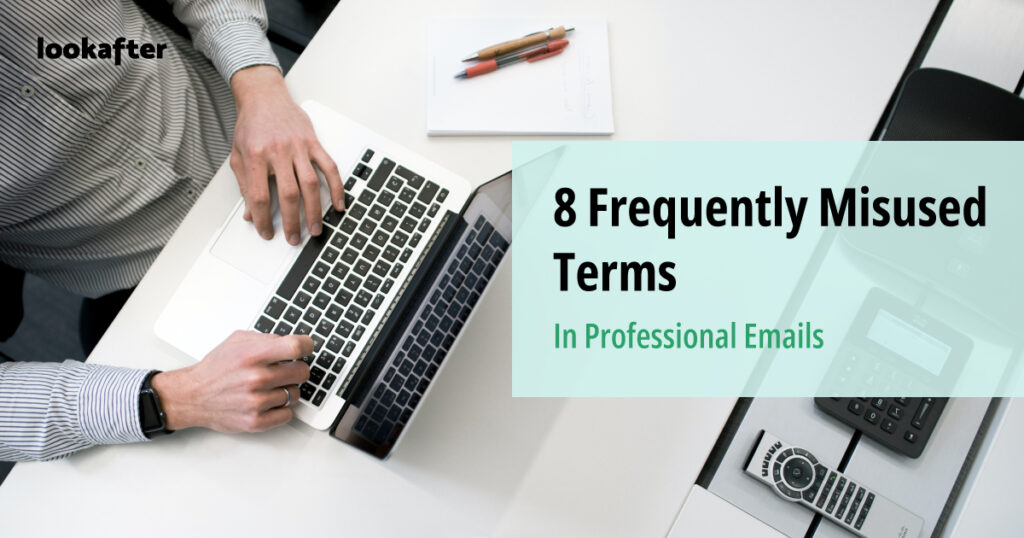Home > Empowering Tips > 8 Frequently Misused Terms in Professional Emails

Imagine this: You’ve just sent a crucial email to a client or colleague, outlining important details about a project or addressing a significant concern. As you await their response, you can’t help but wonder if your message conveyed exactly what you intended. Did you use the right terms? Were you clear and professional?
In the world of business, effective communication is not just important; it’s the key of success. In this article, we’ll explore eight commonly misused terms in professional emails, helping you fine-tune your email etiquette and ensure your messages hit the mark every time.
1. “Per my previous email”
This phrase is often used to demand a response to a previous email. However, it can come across as rude and pushy. A better way to phrase it is, “Following up on my previous email, I was wondering if you had any updates on …”.
2. “I apologize for any inconvenience this may cause”
This phrase is often used in a blanket way, even when the inconvenience is minimal. A better way to phrase it is to be more specific about the inconvenience and how you plan to mitigate it. For example, “I apologize for the delay in responding to your email. I was out of town for meetings, but I am now back in the office and will respond to your inquiry by the end of the day”.
3. “Please let me know if you have any questions”
This phrase is often used at the end of an email, but it can be seen as passive-aggressive. A better way to phrase it is to be more specific about what you need the recipient to do. For example, “Please review the attached proposal and let me know if you have any feedback”.
4. “Thanks in advance”
This phrase is often used to thank someone for something they haven’t done yet. A better way to phrase it is to thank the person after they have completed the task. For example, “Thank you for reviewing the attached proposal and providing your feedback”.
5. “I’m attaching this document for your reference”
This phrase is often used when attaching a document to an email, but it is redundant. The recipient already knows that you are attaching a document for their reference. A better way to phrase it is to be more specific about the document and why you are attaching it. For example, “I’m attaching the latest sales figures for your review”.
6. “All the best”
This phrase is often used to close an email, but it can be seen as unprofessional. A better way to close an email is with a more formal closing, such as “Sincerely” or “Best regards”.
7. “Please note”
This phrase is often used to emphasize a point in an email, but it can come across as demanding. A better way to phrase it is to be more polite and direct. For example, “Please be aware that the deadline for this project is next Friday”.
8. “I’m just following up”
This phrase is often used to excuse yourself for sending a follow-up email. However, it can come across as dismissive and unprofessional. A better way to phrase it is to be more specific about why you are following up and what you need the recipient to do. For example, “I’m following up on my previous email to see if you have any updates on the status of our project”.
By avoiding these incorrect terms, you can write more professional and effective business emails.